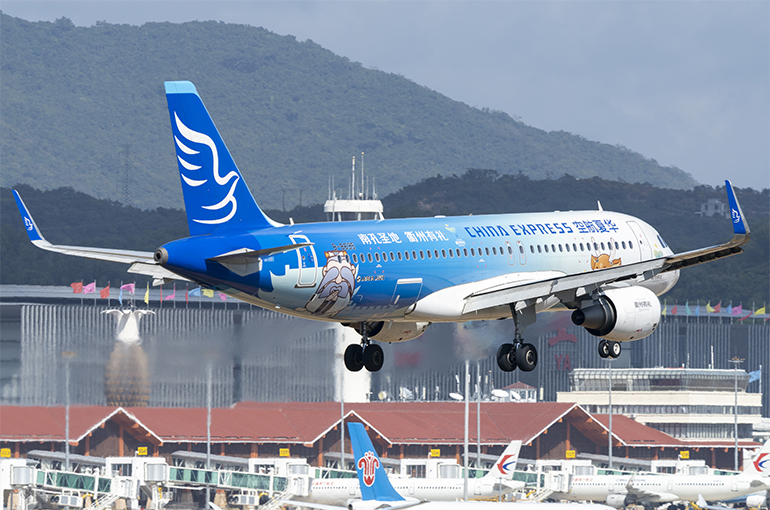 Chinese Airline Finances Take a Hit as Local Governments Fail to Pay Subsidies
Chinese Airline Finances Take a Hit as Local Governments Fail to Pay Subsidies(Yicai) Oct. 16 -- The finances of Chinese airlines, especially those predominantly operating regional routes, are suffering as local governments are unable to cough up the subsidies they were promised because of widespread fiscal pressures.
“Local governments, especially those in third- and fourth-tier cities, have had tight fiscal income since the Covid-19 outbreak, resulting in delayed subsidies to airlines,” Lin Zhijie, a civil aviation industry analyst, told Yicai.
Local authorities often subsidize newly opened routes that encompass their cities, according to industry insiders, adding that these subsidies help the airlines cover potential early-stage losses and encourage them to operate new routes, boosting local economic growth.
For example, China Express Airlines, the nation’s first carrier whose entire business is regional, earns about a third of its revenue from routes agreed with local governments or airports under them. These agreements give the company a 'basic income,’ while its counterparts would have to shoulder potential losses from newly opened routes.
Between 2013 and 2016, Chongqing-based China Express inked such deals with about 40 local authorities or government-owned airports.
Under these agreements, China Express should receive subsidies over a certain period to ensure it can break even on the new routes. And if a specific route should be profitable, the local government can receive a dividend under the terms.
These arrangements were a key reason why China Express was the only listed airline to turn a profit in 2020 in the pandemic. It reported a net profit of CNY613 million (USD86.1 million), having received CNY638 million in subsidies that year alone.
But more and more local governments have missed making these subsidy payments in recent years, leaving carriers in a tight spot, especially regional operators such as China Express and Joy Air, which are heavily dependent on subsidized routes.
Legal Redress
As financial conditions have deteriorated for localities, more and more airlines -- both listed and non-listed -- are finding that their subsidy agreements are not being fulfilled on time. Payments have not been made for one to two years in some regions.
In a bid to receive the overdue subsidies, some airlines have taken local authorities to court. Joy Air took legal action against the state planner of the Alxa League government in Inner Mongolia Autonomous Region, and Loong Airlines sued Qinhuangdao’s transportation authority and two firms controlled by localities in two other provinces.
“Subsidy arrears are a common issue faced by airlines in China today,” an airline source told Yicai. “Typically, these disputes are resolved through negotiations, and legal action is taken only as a last resort.”
But uncertainty remains around how much can be recovered and whether airlines will continue to receive such subsidies in the future, as it all depends on the outcome of the negotiations, the person noted.
In its semi-annual earnings report, major low-cost carrier Spring Airlines flagged squeezed subsidy income as one of its major financial risks for this year. Other airlines also issued similar warnings.
They hope that the support measures announced by China’s finance minister on Oct. 12 can substantially reduce the debt burden on local governments, and thereby help them out. Lan Foan said the central government will soon take steps to help localities mitigate debt risks and address hidden debts.
This could significantly help ease local government fiscal pressures and possibly help airlines secure the missing subsidies or even new deals, Lin noted.
Editors: Tang Shihua, Futura Costaglione